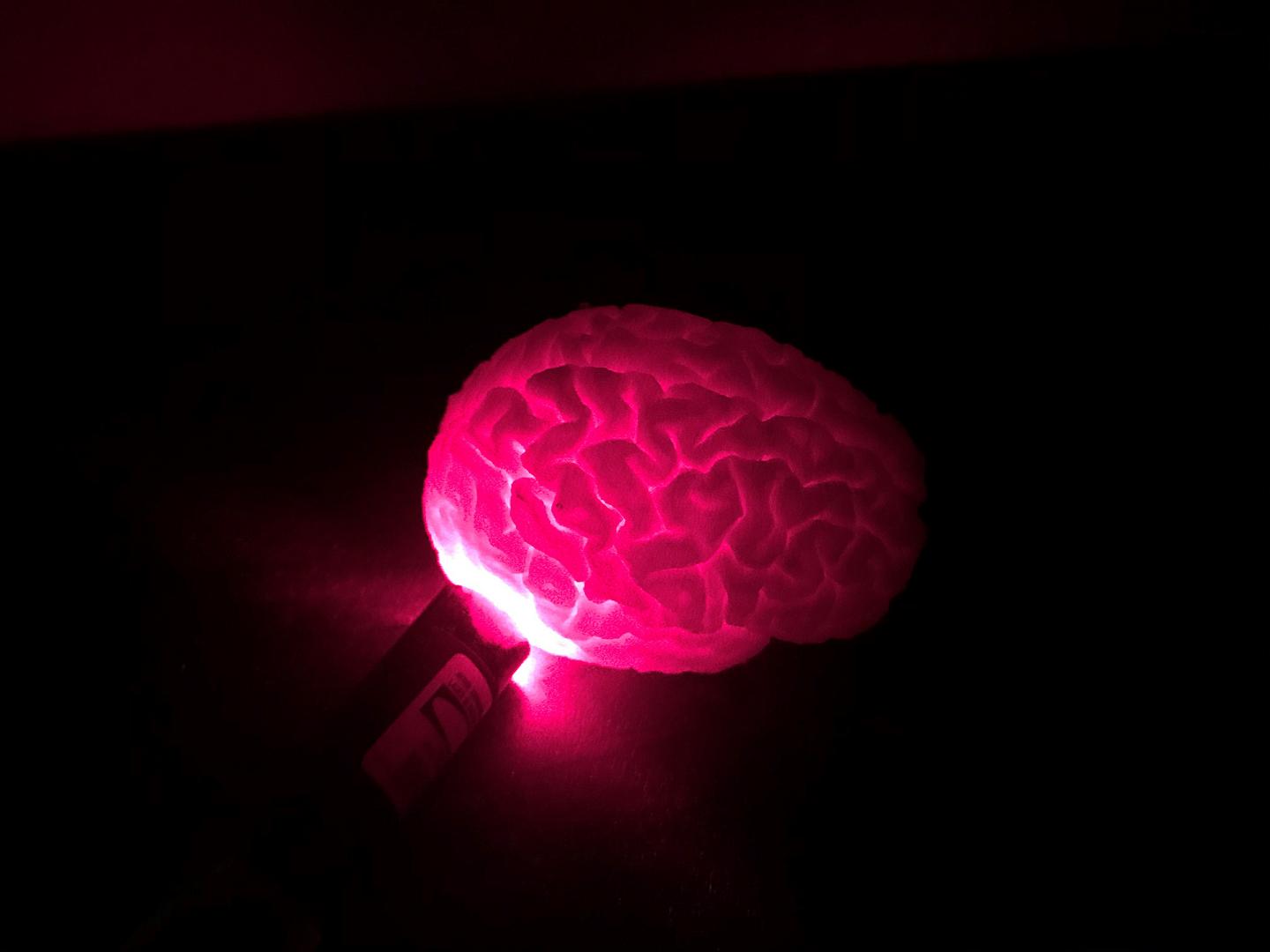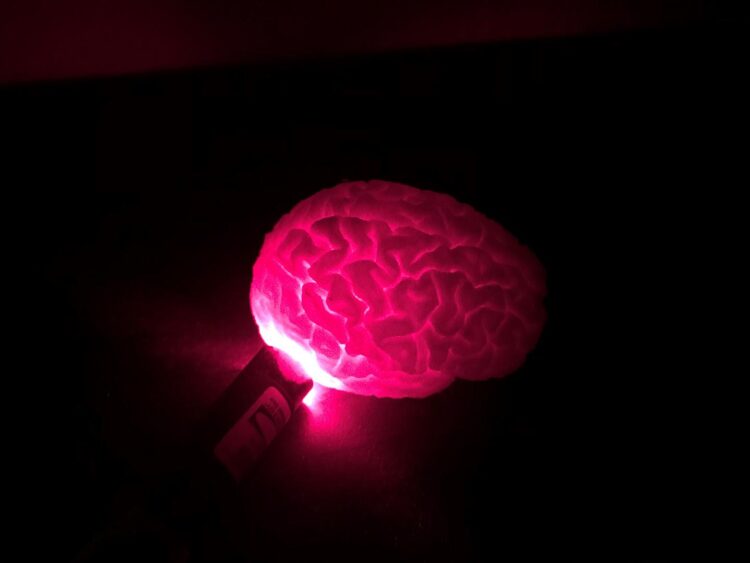
Credit: Purdue University/Brian Bentz
WEST LAFAYETTE, Ind. – A new tool for medical professionals may help shed more light on tumors in the body and how the brain operates.
Purdue University researchers created technology that uses optical imaging to better help surgeons map out tumors in the body and help them understand how certain diseases affect activity in the brain. The work is published in the journal IEEE Transactions on Medical Imaging.
“We are using light to extract new information from tissue to inform doctors and assist them in designing and carrying out surgeries to remove tumors,” said Brian Bentz, a Purdue alumnus, who worked on the technology with Kevin Webb, a professor of electrical and computer engineering at Purdue. “It is a localization method where our technology helps the surgeon pinpoint precise information about the depth and location of tumors. Such information is not easily accessible with current technologies.”
The Purdue technology uses contrast in the absorption of light and fluorescent agents that are introduced into the body to find tumors and/or blood vessels within the tissue. The same technology can be used to study neuron activation in the brain, which can help doctors detect diseases such as Parkinson’s.
Bentz said the Purdue technology overcomes one of the major challenges with fluorescence imaging – the light becomes highly scattered and that limits the information that a surgeon receives.
“Our technology aims to provide more detailed information about tumors for surgeons and neuron activity in the brain, both of which can improve outcomes for patients,” Bentz said.
The innovators are working with the Purdue Research Foundation Office of Technology Commercialization to patent the technology.
###
The researchers are looking for partners to continue testing and developing their technology. For more information on licensing and other opportunities, contact D.H.R. Sarma at OTC at [email protected].
About Purdue Research Foundation Office of Technology Commercialization
The Purdue Research Foundation Office of Technology Commercialization operates one of the most comprehensive technology transfer programs among leading research universities in the U.S. Services provided by this office support the economic development initiatives of Purdue University and benefit the university’s academic activities through commercializing, licensing and protecting Purdue intellectual property. The office recently moved into the Convergence Center for Innovation and Collaboration in Discovery Park District, adjacent to the Purdue campus. The office is managed by the Purdue Research Foundation, which received the 2019 Innovation and Economic Prosperity Universities Award for Place from the Association of Public and Land-grant Universities. The Purdue Research Foundation is a private, nonprofit foundation created to advance the mission of Purdue University. Visit the Office of Technology Commercialization for more information.
About Purdue University
Purdue University is a top public research institution developing practical solutions to today’s toughest challenges. Ranked the No. 6 Most Innovative University in the United States by U.S. News & World Report, Purdue delivers world-changing research and out-of-this-world discovery. Committed to hands-on and online, real-world learning, Purdue offers a transformative education to all. Committed to affordability and accessibility, Purdue has frozen tuition and most fees at 2012-13 levels, enabling more students than ever to graduate debt-free. See how Purdue never stops in the persistent pursuit of the next giant leap at purdue.edu.
Writer: Chris Adam, 765-588-3341, [email protected]
Source: Brian Bentz, [email protected]
Media Contact
Chris Adam
[email protected]
Original Source
https:/




